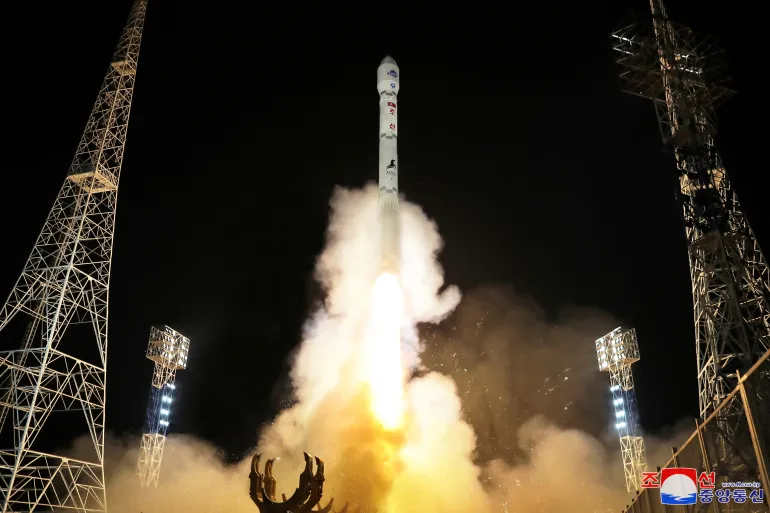
North Korea's efforts to advance its satellite surveillance capabilities faced a significant setback on Monday when a rocket carrying its second spy satellite exploded shortly after liftoff. According to North Korea’s state media, the explosion was attributed to a suspected engine problem, though other potential causes are still under investigation. This incident marks another failed attempt by the reclusive nation to place a spy satellite into orbit, which is seen as a key component of its strategy to monitor the United States and South Korea.
The rocket, launched from North Korea's main space center in the northwest of the country, blew up during its first-stage flight. The official Korean Central News Agency (KCNA) cited an unnamed vice director of the National Aerospace Technology Administration, who indicated that preliminary examinations suggested the explosion was linked to issues with the reliability of the newly developed liquid oxygen-petroleum engine. Further investigations are expected to pinpoint the exact cause of the failure.

The failed launch occurred on a day of significant diplomatic activity in the region. Leaders of South Korea, China, and Japan met in Seoul for their first trilateral meeting in over four years. It is highly unusual for North Korea to engage in such provocative actions while China, its main ally and economic lifeline, is involved in high-level regional diplomacy. Some analysts suggest that the timing of the launch might have been intended to cast a shadow over the Seoul-Beijing-Tokyo summit and express Pyongyang's displeasure with China's engagement with its regional rivals.
In response to the launch, Japan issued a temporary missile warning for the southern prefecture of Okinawa, advising residents to seek shelter. The warning was lifted later in the day when it was determined that the region was no longer at risk. Japanese Defense Minister Minoru Kihara described the launch as “a serious challenge to the entire world,” while South Korea's Unification Ministry condemned it as a provocation that seriously threatened regional security.
North Korea had informed Japan’s coast guard of its plans to launch a satellite rocket, advising caution in waters between the Korean Peninsula and China, as well as east of the main Philippine island of Luzon, during a launch window from Monday through June 3. Despite this forewarning, the launch proceeded to draw sharp criticism from the international community.
During the trilateral meeting in Seoul, South Korean President Yoon Suk Yeol called for strong international measures if North Korea proceeded with its launch plan. Japanese Prime Minister Fumio Kishida urged North Korea to cancel its plans, while Chinese Premier Li Qiang offered general comments promoting peace and stability on the Korean Peninsula without directly addressing the launch.
North Korea's insistence on its right to launch satellites and test missiles continues to be a point of contention. The UN prohibits such activities, viewing them as thinly veiled tests of long-range missile technology. This latest failed attempt underscores the technical challenges that North Korea faces in its quest to enhance its surveillance capabilities.
Kim Jong Un, the North Korean leader, has been pushing to strengthen ties with Beijing and Moscow in an effort to create a united front against Washington. The trilateral diplomacy among Seoul, Beijing, and Tokyo likely presents a troubling development for Pyongyang, which may see it as a threat to its strategic interests in the region.
As North Korea moves forward with its satellite and missile ambitions, the international community remains on high alert, monitoring the implications of Pyongyang's actions on regional and global security.











